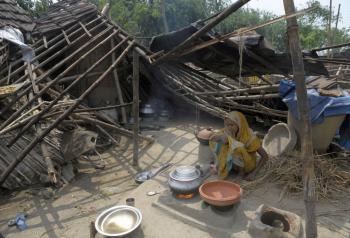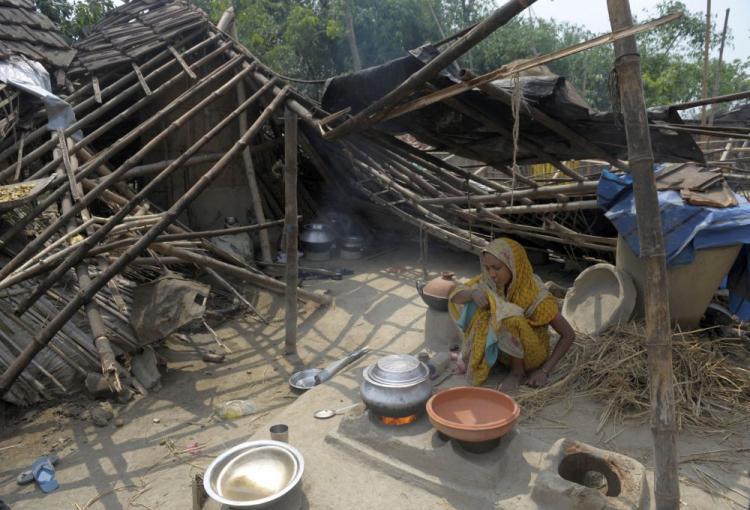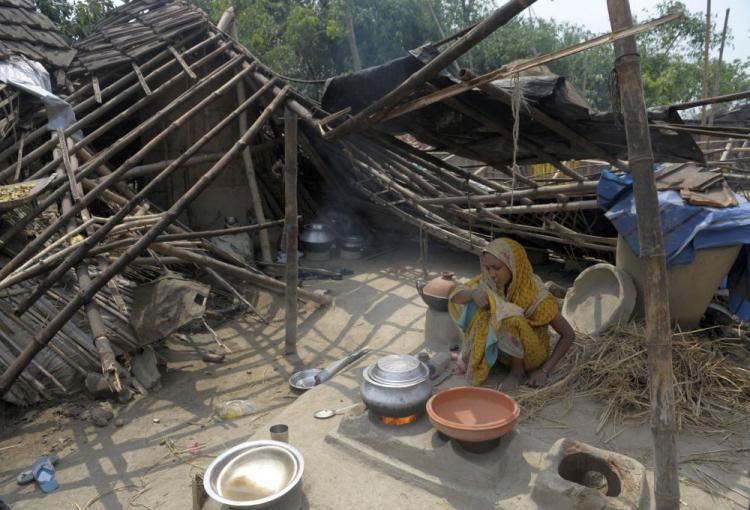Rescue workers are having trouble reaching all parts of Northeastern India that was hit by a cyclone leaving at least 122 people dead, with up to 250,000 people homeless.
Many trees and utility poles obstructed roads hampering rescue workers trying to find survivors and bring food and shelter to those in need. NTDTV reports that the 100 mph winds were the deadliest to strike the States of Bihar and West Bengal in years.
A local magistrate said local officials were given no notice from meteorologists of a potential storm coming. Without a warning, most people were sleeping at the time the storm hit and were caught in their houses.
The heavy winds and falling trees destroyed tens of thousands of huts in the area. Rescue workers trying to find people under trapped buildings, re-establish telephone connections and hand out food, water, and temporary shelters were still not able to reach all of the villages yet on Thursday.
A 30-year-old teacher in Chhota Suhar, a village in West Bengal told AP, “We have so far received no government help. ... People are surviving on whatever they are left with.”
Many trees and utility poles obstructed roads hampering rescue workers trying to find survivors and bring food and shelter to those in need. NTDTV reports that the 100 mph winds were the deadliest to strike the States of Bihar and West Bengal in years.
A local magistrate said local officials were given no notice from meteorologists of a potential storm coming. Without a warning, most people were sleeping at the time the storm hit and were caught in their houses.
The heavy winds and falling trees destroyed tens of thousands of huts in the area. Rescue workers trying to find people under trapped buildings, re-establish telephone connections and hand out food, water, and temporary shelters were still not able to reach all of the villages yet on Thursday.
A 30-year-old teacher in Chhota Suhar, a village in West Bengal told AP, “We have so far received no government help. ... People are surviving on whatever they are left with.”




